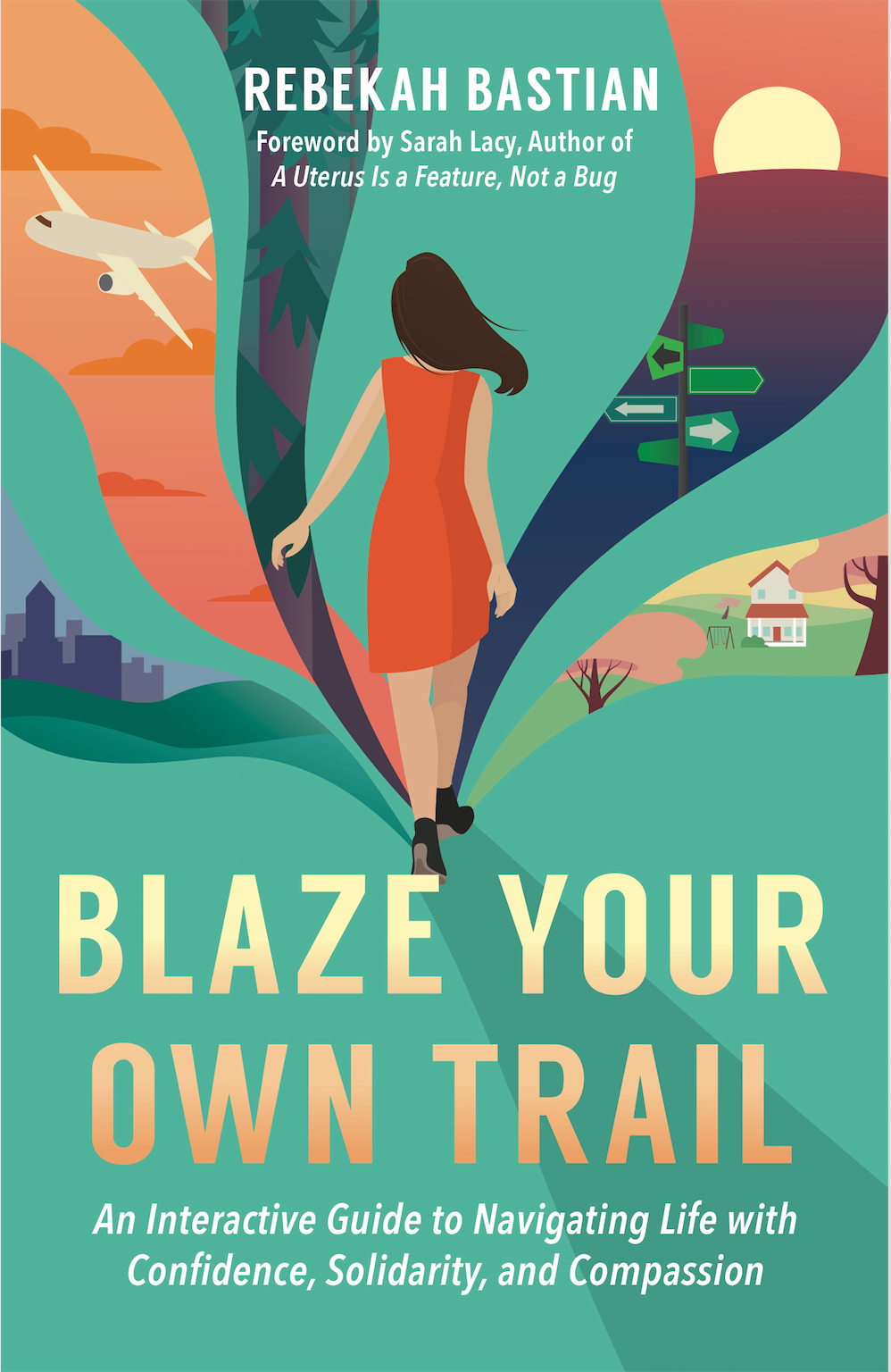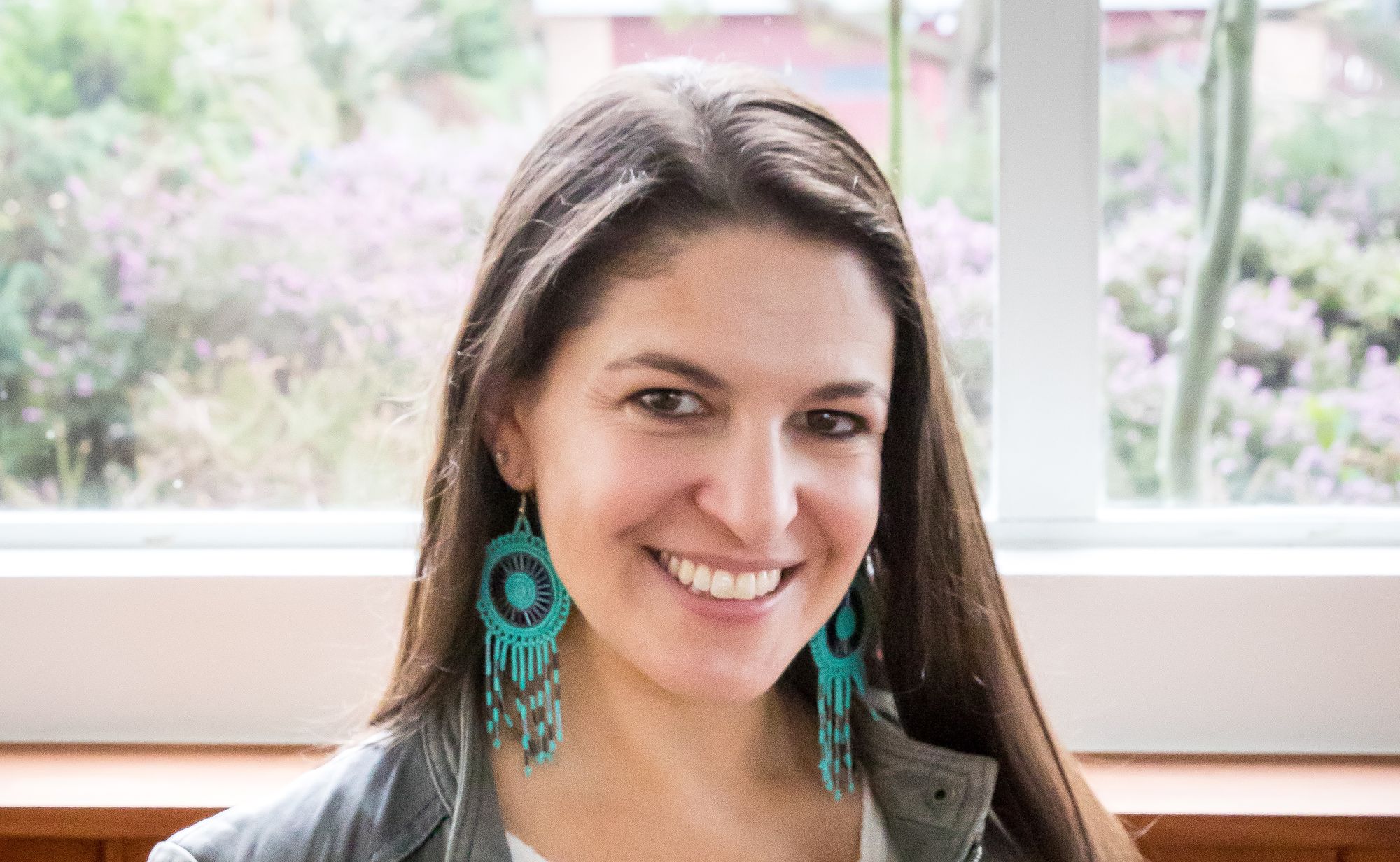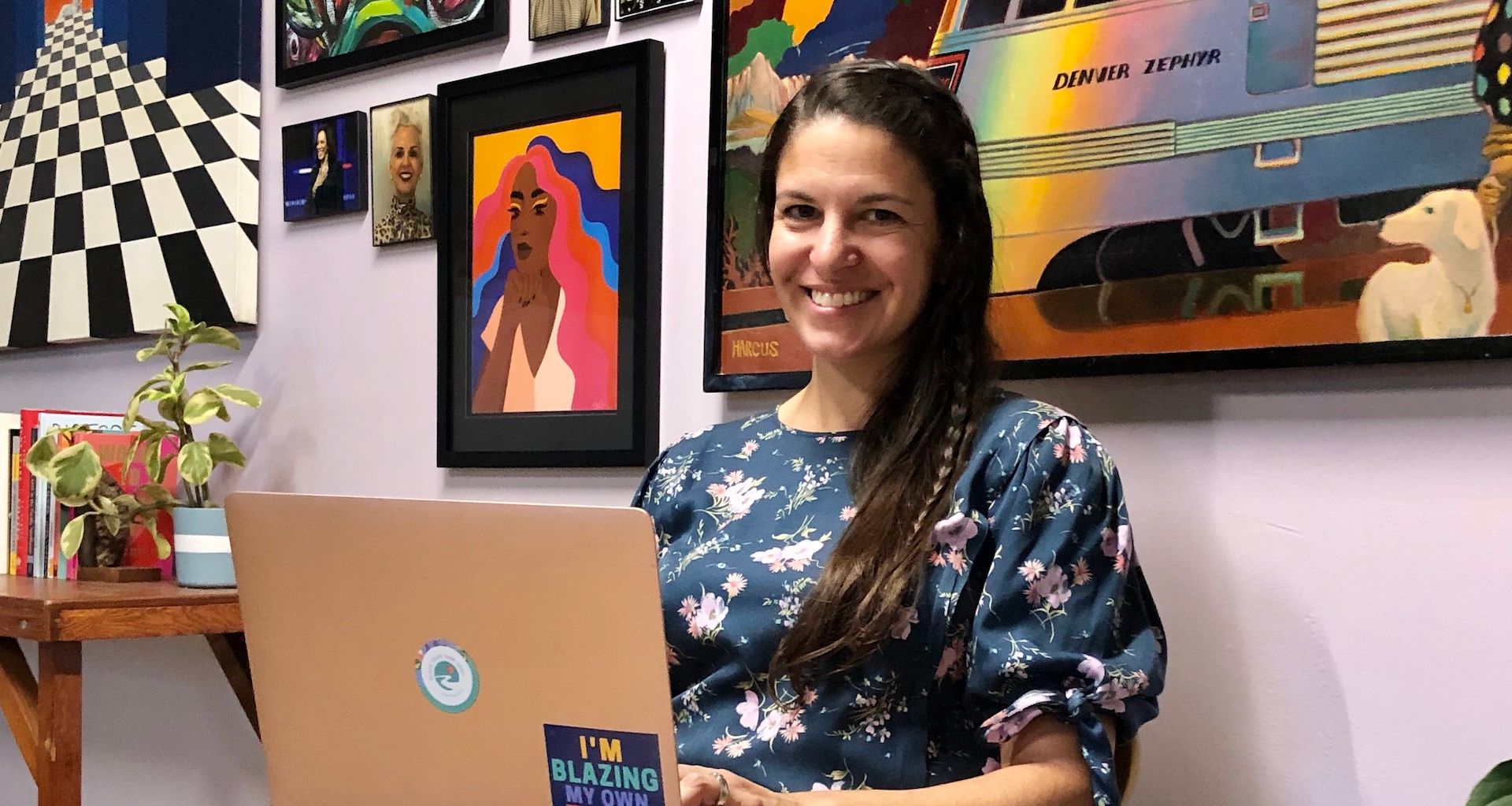Rebekah Bastian wrote her book “Blaze Your Own Trail” as a side project while serving as a corporate executive; later, the impulse led her to found a company. Both the book and her business aim to support women to follow their own individual path in life, as she explains in our interview.
Please tell us something about you and your professional background.
I spent most of my career in product leadership, starting as a product manager at Microsoft, joining Zillow – a US real estate platform – in the very early days as a product manager, and growing to VP of product there. I then followed my passions to create the inaugural Community & Culture team at Zillow, focusing on creating equitable systems and a strong sense of belonging for our employees, and leveraging that work to create social impact through our products. My passion and expertise lie in that intersection of product strategy, culture and social impact.
What inspired you to leave the corporate world and found a startup?
I wrote my book Blaze Your Own Trail as a side project, and didn’t set out to leave my job and start a company. After I had signed a contract with my publisher, I started working on what I thought would be a cool book launch website. I pretty quickly started connecting the dots on some important problems to solve, and having some big ideas for solving them, and before I knew it, I had formed an incredible team of people that were just as excited as I was about that solution. Within months we had all quit our jobs to build out OwnTrail!
I wrote my entire book on Ulysses, largely on my phone while putting my children to sleep at night!
Then let’s talk about the book first. What is it about, and what was your inspiration to write it?
Blaze Your Own Trail is an interactive exploration of the many decisions and pathways that women take through their personal and professional lives. It was inspired by countless conversations I’ve had with women — through my roles as a friend, leader and mentor — in which they were worried about their paths through life, hoping they would “get it right.” I wrote this book to help embrace the idea that there is no one right path, and to help find solidarity in our shared experiences.

Blaze Your Own Trail is written in the choose-your-own-journey format. How is it different from other books of this kind?
I used the choose-your-own-journey format, in that the book follows a second-person narrative that allows the reader to make a decision at the end of each chapter, and that choice tells them what chapter to go to next. It’s different from other books in this format because of the subject matter and because I weave a lot of data into the plotline, in order to show that none of us are alone in what we experience.
Please tell us about the development of the book and which role Ulysses played in this process.
I wrote my entire book on Ulysses, largely on my phone while putting my children to sleep at night! As a fulltime corporate executive with two young children, I didn’t have a ton of spare time for writing. My younger child, who was five years old at the time, would take forever to fall asleep, and would insist on me sitting in a chair in the corner of his room while he did. So I downloaded Ulysses on my phone and my laptop, and would do most of the writing on my phone during bedtime, and then editing on my laptop.
Aside from the technology I used, the writing process itself was really interesting to me. This was my first book, and my first story-based writing, and I was amazed at how it just flowed out of me. When I had the idea for this book, I started by creating a decision tree of what I thought the chapter structure would be. As I wrote, it turned out that entirely different stories poured out of my mind, and the final decision tree was 100% different than the one I originally imagined.
The book inspired the founding of your business, OwnTrail. Please tell us more about it.
I realized that, while the book explores many of the different paths a woman might go through in life, these are just a small subset of the infinite journeys women go through. OwnTrail is providing a way for women to share those paths, and find inspiration from the life paths of others.

Through this approach, we are reimagining and scaling mentorship to serve all women. We know that over 75% of women aren’t giving or getting the mentorship that they want, and so we are solving the problems behind that need in a new way. Through micro acts of mentorship — the sharing of trails — we are creating a powerful tool for understanding the many paths to and from the major milestones in our lives, helping a diverse range of women see people that look like them in places they aspire to, and creating a bridge from inspiration to action. Anyone who identifies as a woman can share the trail she has blazed through life on owntrail.com as a way of owning her narrative and inspiring other women.
Can you give a particular example of how this micro mentorship has worked for women?
We’ve heard amazing feedback from a lot of our users about these micro acts of mentorship. Many say that the act of sharing their trail has been impactful to them because it’s helped them to reflect on their journey, patterns in their lives, and what events made them who they are. We’ve also heard from women that seeing the authentic experiences shared by other women has helped them feel more confident in their own journeys.
I didn’t even know that I liked writing until about five years ago.
What role does writing play in your life?
I love writing — it’s a creative outlet for me, it’s my way of processing my thoughts, and it’s been a powerful tool for meeting amazing people. I write a Forbes column in which I discuss equity & belonging in the workplace, as well as a series I’ve been doing since OwnTrail launched highlighting the trails of inspiring women.
The interesting thing is that I didn’t even know that I liked writing until about five years ago, when I was asked to write a guest blog post. I loved it, ended up getting a byline on Huffington Post, and then my book and my Forbes byline. I think this is important to mention because it’s fascinating to think of all the things we could enjoy and be good at that we don’t even know about yet! It’s a strong case for always trying new things.
Do you plan to write more books? If yes, what will they be about?
I think there’s a good chance! I really enjoyed the writing and publishing process, and I absolutely love my editor, Anna Leinberger, and my publisher, Berrett-Koehler, so it would be great to work more with them. I have a lot of ideas, but I’m not sure which one(s) I will work on. Right now, I’m focused on building OwnTrail and surviving pandemic parenting, so I’ll need to wait a bit before deciding.

As the co-founder of a startup, a sought-after speaker, board member, and advisor for tech startups, you must be very busy. How do you manage to carve out time for writing?
My approach when writing my book was to write a little bit every day. I would set word count goals in Ulysses that forced me to write at least a small amount each day. Some days, I would write the few hundred words that I had as a goal and then stop, because I wasn’t really feeling it. Other days, inspiration would hit and I’d write thousands of words in one sitting. Making writing a daily practice, and using goals to hold myself accountable, resulted in finishing the first draft of my book in about five months.
The current situation in the world is a big challenge, for all of us. How has your daily life changed in the last couple of months, and how do you cope with it, particularly in terms of productivity?
Quarantining and homeschooling my kids, and worrying about the state of the world, have been the most difficult parts. But I’ve had a strong sense of purpose and excitement from building OwnTrail, and I’m so thankful for that. I’ve been a working mom with a lot going on for a while now, so while this is more to juggle than usual, I make it work. I’m lucky that I have an incredible work team, a great husband and a supportive community to help me through.
I love the way I can organize chapters, set goals and see analytics about my writing behavior.
How did you find out about Ulysses and what do you especially like about it?
I found Ulysses when searching for an app for book writing that would sync between my phone and computer via iCloud. I love the way I can organize chapters, set goals and see analytics about my writing behavior.
What other programs and tools do you use, and how do they help you with productivity?
I mostly use Google Docs, Slack, Trello and the Apple Reminders app for productivity. I have pretty simple workflows, and keep a lot of lists!
Thanks for the interview!
